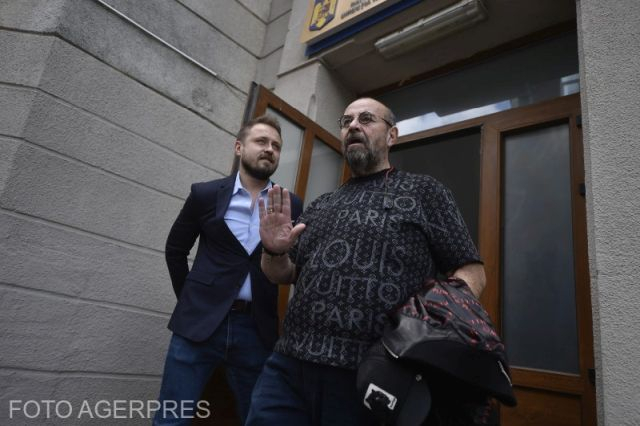Sentences in the Colectiv case
Tens of years of prison sentences and tens of millions of Euros in damages, this is what the Court ruled in the Colectiv trial.

Ştefan Stoica, 13.05.2022, 13:50
October 30, 2015 was the day marking a great national tragedy occurring in times of peace. The fire that broke out that Friday evening in a Bucharest club, where young people had come for a rock concert, took the lives of 65 people, who died on the spot and later in hospital. More than 150 of those who were in the club suffered serious injuries. After 6 and a half years, the court established who the culprits were and gave sentences. The former mayor of Bucharests Sector 4, where the tragedy occurred, Cristian Popescu Piedone, who was the mayor of the neighboring sector 5 at the time the sentence was pronounced, received 4-year imprisonment for abuse of office, diminished by half from the one received in the first instance. In his case, the judges eliminated the aggravated form of his abuse of office crime, which would have brought him in a bigger sentence.
The three owners of the club have also had their sentences reduced, depending on the guilt assessed by the magistrates, and they received between 6 years and 11 years and 8 months. Also judged in this case were the two firefighters from the Bucharest Inspectorate for Emergency Situations who checked the Colectiv Club without taking the legal measures required by the non-observance of the fire safety regulations. They received definitive sentences of 8 years and 8 months each.
The pyrotechnic specialists tried in this case will serve 6 years and 10 months each, but their sentences were also reduced. The three officials from the City Hall were acquitted, after they had initially received between 3-year suspended sentences and 8-year determinate sentences. Neither them, nor Popescu Piedone nor the firefighters will pay damages to the victims of the Colectiv tragedy. The Court of Appeal ordered that some of the convicts should pay damages of tens of millions of euros to the families of the victims and the survivors.
We have all the conditions for treating burns, the then health minister said in the days following the fire. That was a haphazard, if not irresponsible, statement. In fact, the facilities of Romanian hospitals were far from complying with the standards that could ensure real chances of survival for victims with severe burns.
Moreover, that was the moment that revealed to the public the scale of another phenomenon that the press and public health experts had been talking about for some time: hospital-acquired infections. After admitting its chronic inability to intervene in such a situation, the Romanian state accepted the gestures of solidarity of some EU countries. Some of the Colectiv fire victims were sent for treatment abroad, but for some it was too late. Romania still does not have a burn center, which is a major deficiency according to the PM Nicolae Ciuca.
Fires resulting in deaths also occurred after the Colectiv fire, many of them even in hospitals. The corruption, incompetence and administrative negligence, denounced then, in 2015, through extensive street protests that resulted in the resignation of the then government, are still sabotaging the normal functioning of public systems in general, not just of the medical one. (LS)






























